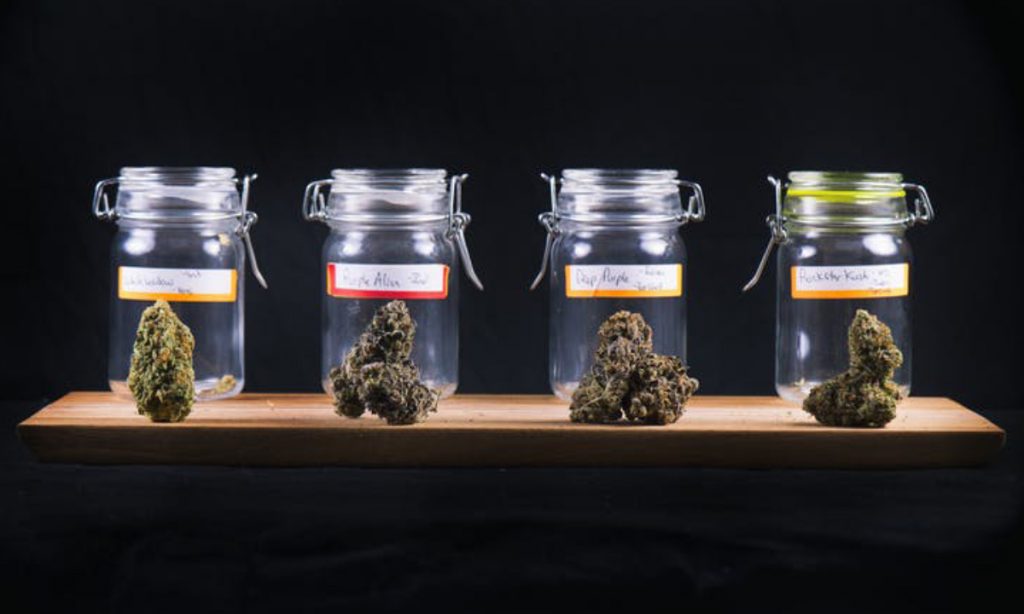How artificial intelligence is being applied to cannabis security
With compliance and security concerns specific to the cannabis industry, artificial intelligence may be the key to improved cybersecurity strategies.
In the modern era, each industry seems to grow with the technology that supports it. Looking to the cannabis business of today, it’s amazing to see how sophisticated and modernized this once grassroots and obscure industry has become. To this end, the cannabis industry of 2019 is beginning to mirror more mainstream businesses, as well as share in the technological advancements that support them. Of the novel technologies being entertained in the cannabis space, artificial intelligence shows some promising potential on the cybersecurity front.
In any U.S. state with a legal cannabis market, compliance and security are some of the most integral features of successful business operations. In fact, if one is even interested in pursuing a cannabis business license in a state like Colorado, they must have functional security and compliance measures already in place. This is important because many of these measures – such as seed-to-sale tracking – are entirely dependent on technology. Therefore, the same digital platforms that make cannabis businesses compliant can also make them vulnerable to the downfalls of said supporting tech. Of these challenges, cyberattacks have raised concerns across the industry, especially with leading seed-to-sale tracking companies like MJ Freeway falling victim to such attacks.
Current forms of cybersecurity technology are only as effective as the tasks that they are programmed to complete. While computers are quite effective for such mundane tasks as cataloguing data, they lack effective decision-making capabilities. This is where AI really stands apart from more established forms of security technology. Through a process known as “machine learning,” some feel that AI can be beneficial to cybersecurity programs because it can “learn” to detect anomalies in cyber activity as they arise. For those who have suffered from cyberattacks, it is precisely these anomalies, or previously unknown hacking avenues, that manage to breach security protocols. To help detect these anomalies, and in a process akin to human rationality, machine learning allows computers to grow more intelligent by way of experience. This adaptive learning allows computers to make real-time decisions independent of human programmers, potentially preventing cyberattacks on the spot.
If one is to understand how AI could be beneficial in protecting cannabis businesses from cyberattacks, it is vital to understand what is at stake. In the society of today, knowledge is power. Looking to the business world, vital information on such things as consumer behavior and purchasing patterns can be the difference between success and failure. Concerning the cannabis space, intellectual property related to cultivation technique, business operations, and product development grows increasingly valuable with the advancement of the industry. Similarly, cannabis dispensaries are a storehouse for vital information on their customers, including data that is critical in identity theft. This information includes customer names, addresses, emails, phone numbers, and financial records.
Of the cybersecurity breaches seen in the cannabis industry, the MJ Freeway hacks are the most publicized. As an ROI-driven cannabis seed-to-sale tracking software company, MJ Freeway has access to a business’ most vital information, including operations statistics and consumer behavior. In both January and June 2017, the company experienced cyberattacks where both personal customer information and source code were taken. As the state-mandated, seed-to-sale tracking software for both Pennsylvania and Washington State, MJ Freeway put both businesses and consumers at risk when they were breached. The question now is, “What sort of steps could MJ Freeway have taken to prevent such incidents?” As the literal “gatekeepers” of the bulk of industry business intelligence, seed-to-sale companies like MJ Freeway, BioTrackTHC, and METRC are charged with staying ahead of the curve in cybersecurity.
There are a few ways that new advancements in AI technology can be applied to cybersecurity measures in the cannabis space, with the end goal of protecting both businesses and consumers. A Forbes article, titled “How Will Artificial Intelligence and Machine Learning Impact Cyber Security?” recently stated, “Organizations are already beginning to use AI to bolster cybersecurity and offer more protections against sophisticated hackers. AI helps by automating complex processes for detecting attacks and reacting to breaches.” Yet, this notion does not represent a wholesale departure from human intervention in cybersecurity scenarios. The article continues: “When you combine very smart security personnel with adaptive technology that continues to change and become smarter over time, this provides a competitive edge to defenders that have primarily been absent from most cybersecurity technologies to date.”
Therefore, the cybersecurity force of the future represents a blending of human ingenuity with machine learning, where both elements are on alert for anomalies that could lead to information breaches. Looking back to cannabis, whether these “defenders” will come in the way of large database companies like MJ Freeway, or smaller individual producers like dispensaries or grow operations, remains to be seen.
In a somewhat ironic twist of fate, it is by becoming more adaptable like human beings that AI is becoming relevant in cybersecurity. This idea stands in stark contradiction to the mechanistic analyzation that is accepted in cybersecurity measures today. Whether in the cannabis industry or beyond, cybersecurity experts, according to DOPE Magazine, recommend that businesses always remain on the cutting-edge of technology. For many, this dedication to innovation is the only surefire way to stay ahead of malicious interests and protect vital information. As the cannabis business continues to grow and mature, AI will inevitably become a part of cybersecurity protocol, just as it has in other industries. Looking at both compliance and security, perhaps AI is the missing piece that streamlines operations in an adaptive and practical fashion.



